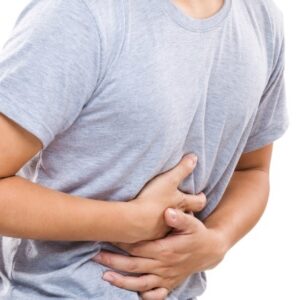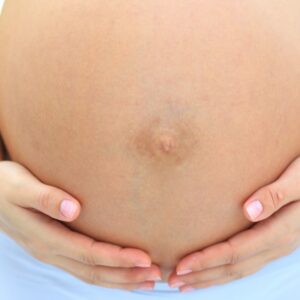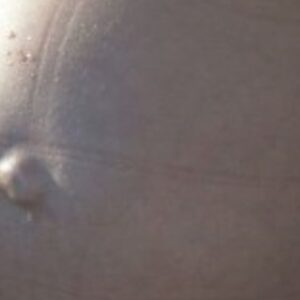Pregnant and nauseated… Morning sickness can strike at any time of the day and last for hours or even around the clock. All we want is to get rid of it.
A quick search on the Internet about remedies for morning sickness and your shopping list to stop the nausea is complete: ginger, acupressure bands, B6-vitamin supplements, acupuncture treatment, herbal teas, and hypnosis…
But there is a risk that you will be disappointed. Many of these widely marketed remedies for morning sickness are not proven efficient by research – some may even be harmful to your baby.
So save your money and your health. First, read about what research says about these different morning sickness cures. Then make your choices.

Remedies For Morning Sickness – Efficient Or Not?
- Ginger May Help
- Other Herbs – Harmless At Best
- Acupressure – Harmless, But Ineffective
- Vitamin B6 Seems Efficient
- Acupuncture Not Worth It
- Hypnosis For Severe Nausea
- Avoiding Iron-Rich Multivitamins Helps
- Conclusions On Which Remedies To Try
- Morning Sickness Book Tips
Ginger May Help
Several older and often quoted studies show a clear relief for morning sickness by consuming ginger. A recent big study was, however, more uncertain.
Ginger is proven to ease motion sickness and other nausea through its compound 6-gingerol, so why not morning sickness? Research doesn’t have the answer to that. 6-gingerol eases nausea by relaxing the gastrointestinal muscles. Since the causes of morning sickness are still virtually unknown, it is, of course, not possible to say if this relaxing of intestinal muscles should help mitigate morning sickness or not.
Nevertheless, even the newest study concluded that ginger may help some, but not all, women. So if you want, you can give it a try.
The general recommendation is to limit your daily ginger consumption to 1000 mg. You can drink ginger tea, take ginger capsules or powder, or eat ginger candy or crystallized ginger.
Of these four methods, I would say ginger candy is the worst. More and more research is showing the importance of a healthy diet during pregnancy, both for your own sake and for the health of your baby. Sugar is certainly not on the list of healthy foods. (You can learn more about eating healthy during pregnancy here.)
Ginger powder may be the best choice if you want quick relief. Mix 0.5 teaspoons of ginger powder with a glass of water and drink it. (Make sure you keep track of your total intake to keep it under 1000 mg per day.)
Ginger capsules are a good option since they can be spread evenly during the day, and it is easy to know exactly how much ginger you consume.
Other Herbs – Harmless At Best
You can easily find recommendations on other herbs to mitigate morning sickness, too, such as peppermint, chamomile, raspberry leaf tea, and several others.
You should be aware, though, that these herbs are not well-researched at all regarding either their safety or their efficiency in reducing morning sickness.
For example, a recent study in Italy found a higher incidence of neonates that were small for their gestational age and a higher incidence of threatening miscarriages and preterm labor among women who consumed large amounts of chamomile and licorice during pregnancy.
Acupressure – Harmless, But Ineffective
Acupressure in different forms is commonly suggested to reduce morning sickness. The inspiration comes from Chinese medicine, where pressure on the Pericardium 6 (P6) acupoint, also known as point Neiguan has been used for thousands of years to mitigate nausea. This point is located about three fingers or 4.5 cm above the wrist on the inside of the forearm, and hence a convenient place to put a wristband for acupressure.
Safe, and cheap, but effective? Unfortunately not.
Research has not been able to find any convincing results that support the use of acupressure to mitigate morning sickness. Some studies do report initial relief of up to 50% compared to the control group, but these studies have been criticized for not being set up good enough to exclude a placebo effect.
One recent high-quality study did find relief, but only a small one. Other studies show absolutely no positive effects at all on pregnancy nausea.
Acupressure bands, or Sea-Bands, as they are called, are not expensive. They are safe to use, so if you want, you can give them a try. Just don’t expect too much.
Vitamin B6 Seems Efficient
Vitamin B6 is a vitamin for the metabolism of amino acids, lipids, and carbohydrates. Several studies have found that a B6 supplement of 10-40mg per day significantly reduces morning sickness.
Some studies have compared ginger and B6 and actually found ginger more effective – but both remedies have a positive effect. However, since one of the biggest, most recent studies on ginger found inconsistent results but actually found some solid support for B6, this may be a good remedy to try.
Just make sure you don’t consume too much. The recommendation today is to stay below a daily intake of 200 mg, and at these levels, no incidences of toxicity have been found – but they have at doses of 2000-6000 mg.
Acupuncture Not Worth It
Acupuncture is similar to acupressure but with needles. You can’t carry it out yourself as you can with acupressure. There are some older studies that have found a benefit from acupuncture, but it is not clear that it would be any more efficient than acupressure. (And it is not clear that it is effective at all.)
Hypnosis For Severe Nausea
Hypnosis may have a positive impact on severe morning sickness. Several studies have found encouraging results, but all studies were too small to provide solid evidence. But if nothing else works for you, this may be something to try. But maybe ginger and B6 should be your first remedies for morning sickness to try.
Cheaper…
Avoiding Iron-Rich Multivitamins Helps
Go and take a look at the contents of your prenatal vitamins. If they contain iron (most do), you may want to stop taking them. A study in 2009 found significant nausea relief among women who switched from iron-containing prenatal multivitamins to a combination of folic acid, an adult multivitamin (without iron), or a children’s chewable multivitamin.
However, after week 12 of your pregnancy, you need to switch back since, after that, you need more iron to prevent anemia during pregnancy.
Conclusions On Which Remedies for Morning Sickness To Try
It is a bit frustrating that a condition that hits up to 80-90% of all women during early pregnancy is still so poorly understood and that research on remedies for morning sickness is so limited and of poor quality.
This overview does, however, indicate that discontinuing the use of iron-containing vitamins, adding B6 to your supplements, and consuming some ginger can help. If this doesn’t help at all, you may want to try acupressure and possibly hypnosis. Since acupuncture doesn’t seem to provide any better help than acupressure, there really is no point in using needles unless you really want to.
There are also anti-nausea drugs that you can ask your doctor or midwife about.
And if nothing works, it may at least help your sanity to know that morning sickness appears to keep your baby safe and sound inside of you. You can read more about the benefits of morning sickness here.
And here is a poll on when morning sickness started and stopped for other women.
Morning Sickness Book Tips
- Take Two Crackers and Call Me in the Morning!: A Real-life Guide for Surviving Morning Sickness
- Mayo Clinic Guide to a Healthy Pregnancy: From Doctors Who Are Parents, Too!
- Pregnancy Sucks: What to Do When Your Miracle Makes You Miserable
Read Next
What do you do to mitigate morning sickness? Share your tips on remedies for morning sickness by leaving a comment below!


Paula Dennholt founded Easy Baby Life in 2006 and has been a passionate parenting and pregnancy writer since then. Her parenting approach and writing are based on studies in cognitive-behavioral models and therapy for children and her experience as a mother and stepmother. Life as a parent has convinced her of how crucial it is to put relationships before rules. She strongly believes in positive parenting and a science-based approach.
Paula cooperates with a team of pediatricians who assist in reviewing and writing articles.







Eat high protein feeds and take small sips of water to stay hydrated and drink No to morning sickness tea for easing your sickness/nausea. It was my only lifesaver when I was in the same boat you are in now!
The best cure for morning sickness is No to morning sickness tea. My OB gave me the okay to take this tea. You will be amazed at how well this tea works.